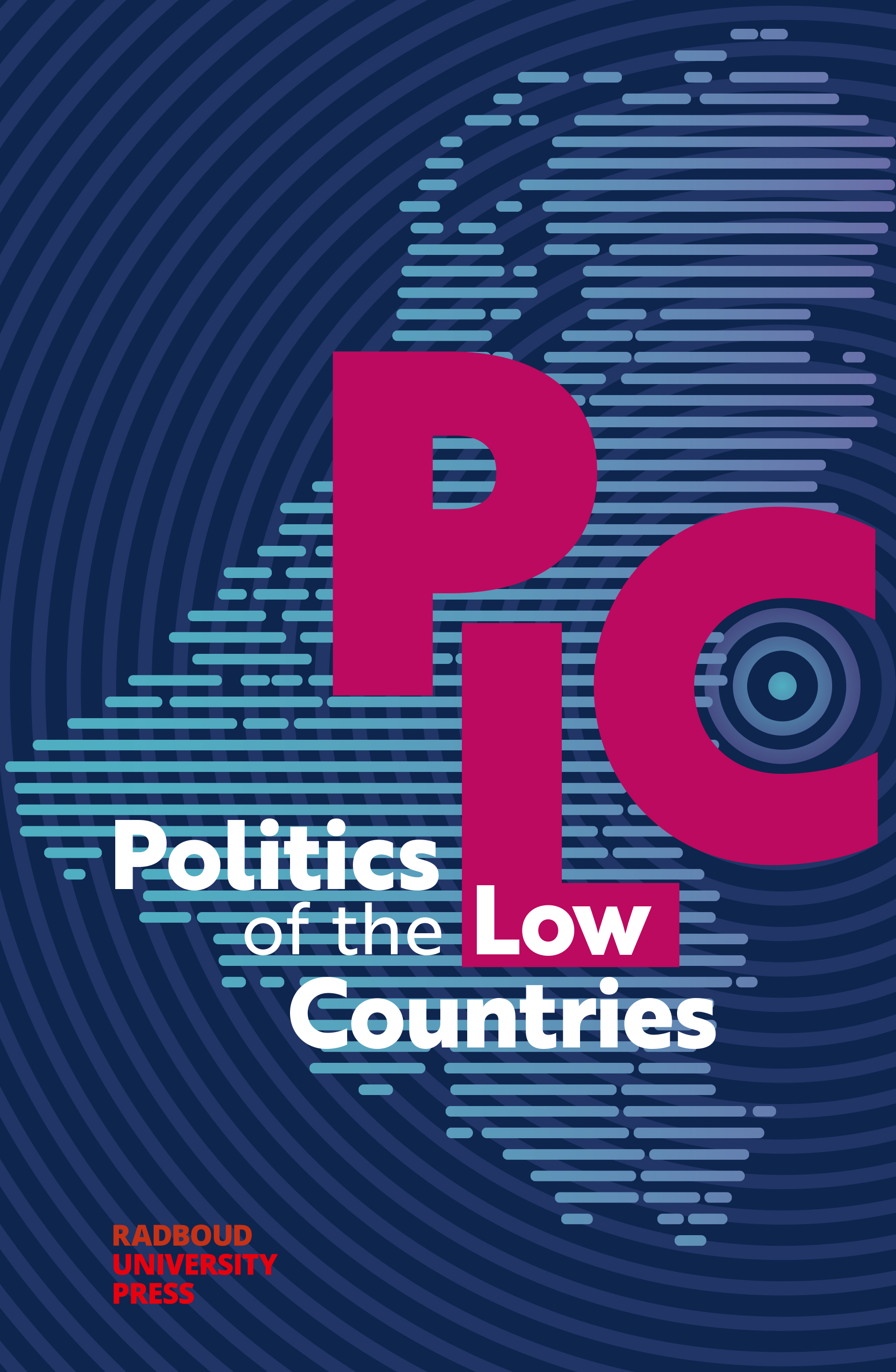PhD summary: Minority voting and representation
The impact of religion, migration background and gender on voter preferences for in- and out-group politicians in France, Germany and the Netherlands
DOI:
https://doi.org/10.54195/plc.23042Keywords:
Muslim voters, Voter reactions, Electoral appeal, Political representation, Identity politics, Diversity in politics, Representation and inclusionAbstract
The political representation of historically marginalised and minoritised groups is far from straightforward. Minoritised politicians often distance themselves from their group to broaden their electoral appeal (Stephens-Dougan, 2020). Meanwhile, party elites also struggle with dilemmas of inclusion (Dancygier, 2017) leading to political representation of minoritised groups characterised as suppressing instead of supporting (Aydemir & Vliegenthart, 2016, 2022). In light of this convoluted context, how do voters react to diversity in politics? I studied how voters react to women, ethnic minority, and Muslim politicians, as well as how these groups respond to in-group politicians.
Downloads
References
Akachar, S. (2018). Representation in the eye of the beholder, Flemish Muslim youth on (not) feeling politically represented. Faculteit Economische en Sociale Wetenschappen and Solvay Business School. Available at: https://research.vu.nl/en/publications/representation-in-the-eye-of-the-beholder-flemish-muslim-youth-on. Accessed on August 16 2023.
Akachar, S., Celis, K., & Severs, E. (2017). Hoop en verraad: wat moslimjongeren verwachten van vertegenwoordigers met een etnische minderheidsachtergrond. Res Publica, 59(4), 463–487. Available at: https://openjournals.ugent.be/rp/article/id/74643/print/. Accessed on August 16 2023.
Aktürk, S., & Katliarou, Y. (2021). Institutionalization of Ethnocultural Diversity and the Representation of European Muslims. Perspectives on Politics, 19(2), 388–405. DOI: 10.1017/S1537592720001334.
Al-Faham, H. (2021). Researching American Muslims: A Case Study of Surveillance and Racialized State Control. Perspectives on Politics, 19(4),1131-1146. DOI: 10.1017/S1537592720003655.
Alimahomed-Wilson, S. (2019). When the FBI Knocks: Racialized State Surveillance of Muslims. Critical Sociology, 45(6), 871-887. https://doi.org/10.1177/0896920517750742.
Aydemir, N., & Vliegenthart, R. (2016). Minority Representatives’ in the Netherlands: Supporting, Silencing or Suppressing? In: Parliamentary Affairs, 6(1), 73–92. https://doi.org/10.1093/pa/gsv009.
Aydemir, N., & Vliegenthart, R. (2022). Tracing roots of group representation among MPs with immigrant backgrounds: A content analysis on parliamentary questions in the Netherlands. Ethnicities 22(3), 467–486. DOI: 10.1177/14687968211005187.
Bailer, S., Breunig, C., Giger, N., et al. (2021). The Diminishing Value of Representing the Disadvantaged: Between Group Representation and Individual Career Paths. British Journal of Political Science, 52(2), 535-552. DOI: 10.1017/S0007123420000642.
Dancygier, R.M. (2013). The Left and Minority Representation, The Labour Party, Muslim Candidates, and Inclusion Tradeoffs. Comparative Politics, 46(1), 1–21. https://doi.org/ 10. 5129/ 001041513807709338.
Dancygier, R.M. (2014). Electoral rules or electoral leverage? Explaining Muslim representation in England. World Politics, 66(2), 229–263. https://doi.org/10.1017/S0043887114000021.
Dancygier, R.M. (2017). Dilemmas of Inclusion. Princeton University Press. DOI: 10.2307/j.ctt1 vwmgf2.
Farris, S.R. (2017). In the Name of Women’s Rights, The Rise of Femonationalism. Durham and London: Duke University Press.
Fernández-Reino, M., Di Stasio, V., & Veit, S. (2023). Discrimination unveiled: a field experiment on the barriers faced by Muslim women in Germany, the Netherlands, and Spain. European Sociological Review, 39(3), 479–497. DOI: 10.1093/esr/jcac032.
Hughes, M.M. (2013). The intersection of gender and minority status in national legislatures: The minority women legislative index. Legislative Studies Quarterly, 38(4), 489–516. DOI: 10.1111/ lsq.12025.
Hughes, M.M. (2016). Electoral Systems and the Legislative Representation of Muslim Ethnic Minority Women in the West, 2000-2010. Parliamentary Affairs, 69, 548–568. DOI: 10.1093/pa/gsv062.
Korteweg, A.C., & Yurdakul, G. (2021). Liberal feminism and postcolonial difference: Debating headscarves in France, the Netherlands, and Germany. Social Compass, 68(3), 410–429. DOI: 10.1177/0037768620974268.
Nadler, A., Hepplewhite, M., & van Oosten, S. (2025). Does In-Group Favouritism Lead to In-Group Voting? An Experimental Study of Vote Choice among Minority and Majority Voters. https://doi.org/10.31219/osf.io/7fze4.
Puar, J. (2013). Rethinking homonationalism. International Journal of Middle East Studies, 45(2), 336–339. DOI: 10.1017/S002074381300007X.
Saward, M. (2010). The Representative Claim. Oxford: Oxford University Press. DOI: 10.1093/acprof:oso/9780199579389.001.0001.
Schwarz, S., & Coppock, A. (2022). What Have We Learned about Gender from Candidate Choice Experiments? A Meta-Analysis of Sixty-Seven Factorial Survey Experiments. The Journal of Politics, 84(2), 655–668. DOI: 10.1086/716290.
Stephens-Dougan, L. (2020). Race to the Bottom. University of Chicago Press. DOI: 10.7208/chicago/9780226699035.001.0001.
van Oosten, S. (2020). An MP Who Looks Like Me? Pre-registration. https://doi.org/10.17605/OSF.IO/J5YGQ.
van Oosten, S. (2022). What shapes voter expectations of Muslim politicians’ views on homosexuality: stereotyping or projection? Electoral Studies 80, 1-20. https://doi.org/10.1016/j.electstud.2022.102553.
van Oosten, S., Mügge, L., & van der Pas, D. (2024a). Race/Ethnicity in Candidate Experiments: a Meta-Analysis and the Case for Shared Identification. Acta Polit 59, 19–41. https://doi.org/10.1057/s41269-022-00279-y.
van Oosten, S., Mügge, L., Hakhverdian, A., van der Pas, D., & Vermeulen, F. (2024b). French Ethnic Minority and Muslim Attitudes, Voting, Identity and Discrimination (EMMAVID) - EMMAVID Data France, https://doi.org/10.7910/DVN/ULQEAY, Harvard Dataverse.
van Oosten, S., Mügge, L., Hakhverdian, A., van der Pas, D., & Vermeulen, F. (2024c). German Ethnic Minority and Muslim Attitudes, Voting, Identity and Discrimination (EMMAVID) - EMMAVID Data Germany, https://doi.org/10.7910/DVN/GT4N9J, Harvard Dataverse.
van Oosten, S., Mügge, L., Hakhverdian, A., van der Pas, D., & Vermeulen, F. (2024d). Dutch Ethnic Minority and Muslim Attitudes, Voting, Identity and Discrimination (EMMAVID) - EMMAVID Data the Netherlands, https://doi.org/10.7910/DVN/BGVJZQ, Harvard Dataverse.
van Oosten, S. (2024b). ‘Broadstancers’ hebben een electoraal voordeel. Binnenlands Bestuur. Accessed January 6, 2025, from https://www.binnenlandsbestuur.nl/bestuur-en- organisatie/negatieve-vooroordeel-tegen-islamitische-politici-verdwijnt-helemaal-wanneer.
van Oosten, S., Mügge, L., Hakhverdian, A., & van der Pas, D. (2024e). What Explains Voting for DENK: Issues, Discrimination or In-group Favouritism? Representation, 60(4), 601–623. https://doi.org/10.1080/00344893.2024.2387011.
van Oosten, S. (2024c). ‘Judeonationalisme’ als nieuwe beschavingsretoriek. Binnenlands Bestuur. Accessed January 6, 2025, from https://www.binnenlandsbestuur.nl/carriere/judeonationalisme-nadelig-voor-moslims-en-joden.
van Oosten, S. (2024d). Judeonationalism: calling out antisemitism to discredit Muslims. The Loop, European Consortium of Political Science. Accessed January 6, 2025, from https://theloop.ecpr.eu/judeonationalism-antisemitism-for-the-discrediting-of-muslims/.
Downloads
Published
Issue
Section
License
Copyright (c) 2025 Sanne van Oosten (Author)

This work is licensed under a Creative Commons Attribution 4.0 International License.



